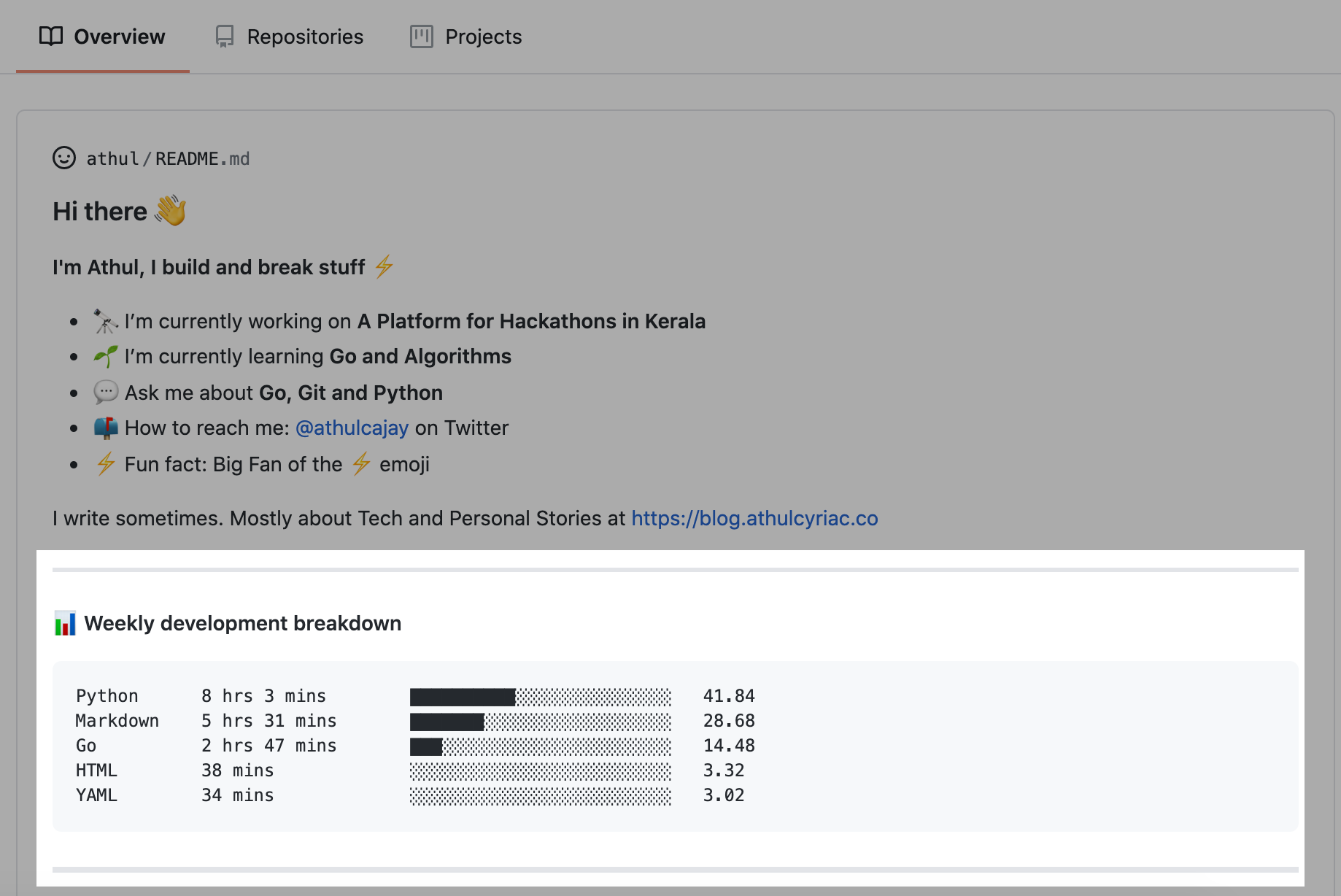2.6 KiB
Dev Metrics in Readme
WakaTime Weekly Metrics on your Profile Readme:

New to WakaTime
WakaTime gives you an idea of the time you really spent on coding. This helps you boost your productivity and competitive edge.
- Head over to https://wakatime.com and create an account.
- Get your WakaTime API Key from your Account Settings in WakaTime.
- Install the WakaTime plugin in your favourite editor / IDE.
- Paste in your API key to start the analysis.
Update your Readme
Add a comment to your README.md like this:
<!--START_SECTION:waka-->
<!--END_SECTION:waka-->
These lines will be our entry-points for the dev metrics.
Using it
Save your WakaTime API Key as WAKATIME_API_KEY = <your wakatime API Key> in your Repository Secrets.
That's it! The Action runs everyday at 00.00 UTC
Profile Repository
If you're executing the workflow on your Profile Repository (<username>/<username>)
You wouldn't need an GitHub Access Token since GitHub Actions already makes one for you.
Here is a sample workflow file for you to get started:
name: Waka Readme
on:
schedule:
# Runs at 12am UTC
- cron: '0 0 * * *'
jobs:
update-readme:
name: Update this repo's README
runs-on: ubuntu-latest
steps:
- uses: athul/waka-readme@master
with:
WAKATIME_API_KEY: ${{ secrets.WAKATIME_API_KEY }}
Other Repository (not Profile)
If you're executing the workflow on another repo other than <username>/<username>
You'll need to get a GitHub Access Token with a repo scope and save it in the Repo Secrets GH_TOKEN = <Your GitHub Access Token>
Here is Sample Worflow File for running it:
name: Waka Readme
on:
schedule:
# Runs at 12am UTC
- cron: '0 0 * * *'
jobs:
update-readme:
name: Update Readme with Metrics
runs-on: ubuntu-latest
steps:
- uses: athul/waka-readme@master
with:
WAKATIME_API_KEY: ${{ secrets.WAKATIME_API_KEY }}
GH_TOKEN: ${{ secrets.GH_TOKEN }}
USERNAME: <username> # optional, it will automatically use the username of the owner of the repository who's executing the workflow.